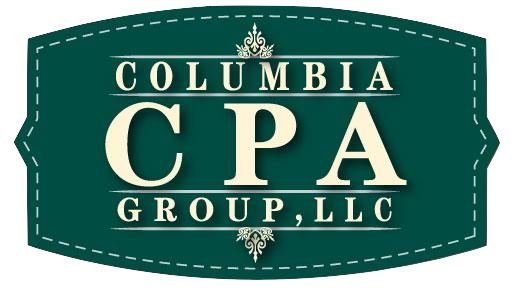
In Part 1, I asserted that I witnessed regulatory overreach and abuse by the IRS during my 40-year career. I also presented my 6-point quick tax primer and listed the many Acts (taxes) imposed by Britain on Colonial Americans prior to the Revolutionary War. In response, the first Continental Congress met in Philadelphia during autumn of 1774.
Historically, the extreme tax burdens placed on the colonists repeatedly (without any input or representation) forced them into a corner. Ultimately, the colonists chose to hazard their lives in an armed conflict against Britain. The Declaration of Independence marks the commencement of our country and ends with this final sentence and proclamation: “And for the support of this Declaration, with a firm reliance on the protection of divine Providence, we mutually pledge to each other our Lives, our Fortunes, and our sacred Honor.”
In Part 2, I will begin to validate my accusation that the IRS is the worst abuser of the tax code. I will provide facts and cases that support that premise and show how the IRS distorts the commonly held understanding of words used in the tax code to deny tax deductions, which were put in the tax code by Congress. (Remember, Congress uses tax laws to motivate citizens to take certain actions for a tax break. It is fraudulent to promise citizens a tax break (for taking or refraining from certain actions), only to be told later by the IRS that they don’t qualify for “technical reasons.”)
Example 1, the Shellito case. I clearly remember the cover of the June 2011 issue of the Taxpro Monthly stating in large red ink, “IRS Denies Employee Benefit Program Deduction for Housewife.” The subtitle was “Taxpayers’ employment arrangement was not valid.” Next to the headline was a color picture of a married couple on a red all-terrain vehicle with their farm in the background. The official title to the case is: US Tax Court, T.C. Memo 2010-41, Milo L. and Sharlyn K. Shellito, Petitioners v. Commissioner of Internal Revenue, Respondent.
The article proceeded to summarize the facts and the ruling by the Tax Court, which upheld the arguments of the IRS. IRC Section 105 covers Health Reimbursement Arrangements (HRA) which are widely used by self-employed farmers and business owners. In tax years 2001 & 02, Milo officially hired his wife Sharlyn to do bookkeeping and other duties pertaining to the farm operation owned by Milo. To legally deduct medical expenses and save taxes, he implemented a Section 105 HRA plan with TASC.
The plan allowed Sharlyn to be reimbursed for all of her family’s medical expenses, which included 100% of the cost of health insurance, copays, and deductibles. Milo was also covered as part of the family HRA and the reimbursements to Sharlyn were legitimate deductions of his farming operation. During an audit of those two tax years, the IRS disallowed the Section 105 plan deductions.
The IRS argued and the Tax Court upheld the following: 1) Sharlyn listed her occupation as “Housewife” (not “farm employee”), 2) “Mrs. Shellito was not a bona fide employee,” and 3) “she provided services as part of a shared enterprise of marriage.” Fortunately, the Tax Court disallowed the 20% accuracy penalty because the Shellitos relied on advice of their accountant. That is how this frontpage article ended.
After the Tax Court loss, the case was appealed and the Shellitos lost again. Finally, the taxpayers prevailed in the Tenth Circuit Court. Three judges unanimously reversed the Tax Court’s decision. They chastised the previous decision affirming that Section 105 is established law. Concerning the employment agreement, employment paperwork and work log, the Shellitos had “crossed all of the t’s and dotted all of the i’s.” The documentation was perfect, yet the IRS and the Tax Court ignored it.
A few months after the case was overturned by the Tenth Circuit Court, Taxpro published a new article containing facts that were ignored by Tax Court: 1) Sharlyn kept a daily log of time spent on farm work, 2) an accountant performed tax preparation and payroll services, 3) the accountant helped with an employment agreement, 4) the Section 105 HRA plan was obtained through TASC, the industry expert, and 5) the accountant properly reported the wages and employee benefits.
Fortunately for the Shellitos, the TASC audit guaranty helped them stay the course and ultimately prevail. However, the lesson is sobering. A Kansas Ag couple did everything right, but the IRS purposely twisted the clear meaning of the tax code and disallowed this legal tax break. They had to fight to keep the big government bully (aka, IRS) from stealing a deduction the tax code clearly permitted.
The Shellito case is a vivid example of how the IRS operates. They ignore established law and deceitfully manipulate the facts. The result is always an increase in taxes. To summarize the lessons from the Shellito case, the IRS:
- Wants you to pay more tax,
- Purposely distorts the tax code to produces a larger tax burden,
- Takes unethical positions, hoping that most taxpayers who owe about $11,000 will settle and pay, rather than incur expensive legal fees,
- Continues to intimidate compliant taxpayers because they know that most people will pay a lot of money to make the emotional pain and stress of an IRS audit go away, and
- The third-party audit guaranty was critical. Without TASC picking up the legal tab (more than $100,000) the Shellitos would have settled, paid the tax, and not become a landmark case illustrating the injustice of the IRS and their evil practices.
Aric Schreiner, CPA, PFS, Certified Tax Strategist, helps successful professionals and small business owners strategize to reduce taxes and audit risk.




